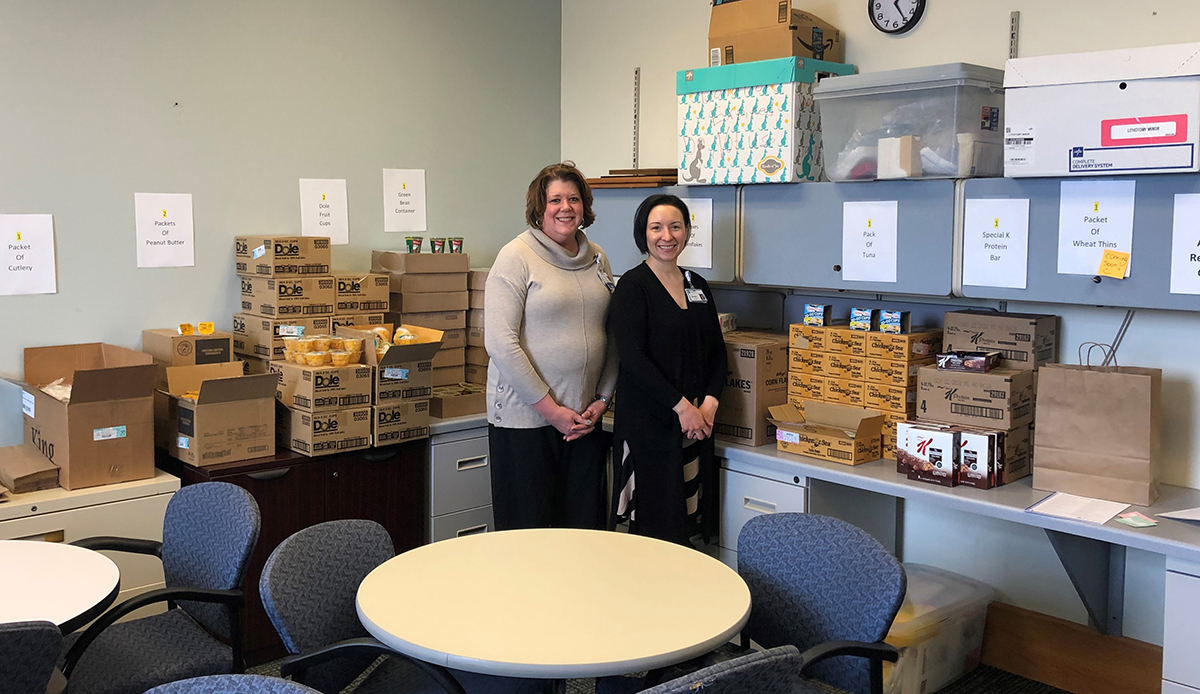 Deb Schaber (left), manager of operations for the ProHealth Medical Group clinic, and Rebekah Tadysak, site leader for the clinic, are shown with food program supplies.
Deb Schaber (left), manager of operations for the ProHealth Medical Group clinic, and Rebekah Tadysak, site leader for the clinic, are shown with food program supplies.Nutrition is a fundamental part of good health, so the ProHealth Medical Group clinic in downtown Waukesha has found a way to address food insecurity among its patients.
In the first six months of a program launched in 2020, the clinic screened more than 1,900 patients for food insecurity and provided 525 bags of healthy food to nearly 600 patients who screened positive.
The clinic is just a few blocks from ProHealth Waukesha Memorial Hospital. Many of the clinic’s patients also receive services at the hospital. The clinic is in an area that the U.S. Department of Agriculture identifies as having less access to nutritious food than other nearby areas.
Food insecurity affects 13% of Wisconsin residents. Those impacted may have difficulty obtaining healthy food, they may at times run out of food, or they may have to make lower cost, unhealthy food choices. ProHealth’s Community Health Needs Assessment has identified addressing food insecurity as a community priority.
“Food insecurity is a factor in obesity and diabetes,” said Susanne Krasovich, MD, family medicine physician. “It makes it harder for people to incorporate more fresh fruit and vegetables into their diet, or to follow a diabetic or low-sodium diet.”
The clinic team uses two Hunger VitalSign evidence-based statements to screen every adult patient for food security before every clinic visit. Physicians are informed of the
screening results before speaking with the patient, so they can discuss nutrition and food access with the patient.
Patients who affirm a screening statement receive a bag of dietitian-recommended food items and a ProHealth local food resource guide. Two bags of food are provided for larger families. Each eligible patient can receive food at every visit.